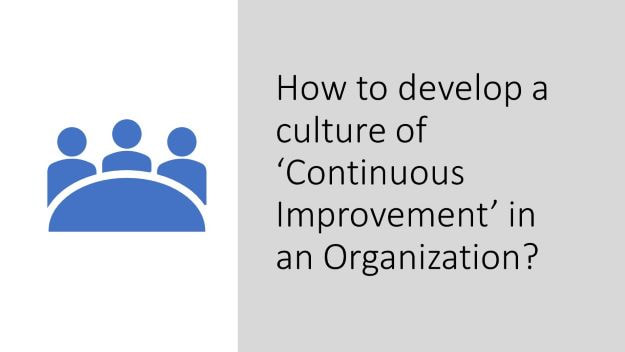One of the first stages in order to foster continuous improvement in an organization is to clearly define and express anticipations. In a business, it is common for expectations to include punctual employees, attendance at gatherings, timely submission of projects and involvement in ways that can benefit the procedures, product or service. It is necessary for anticipations to be expressed as clearly as possible. It is also advisable for expectations to be repeated frequently so that employees are reminded.
It is essential for skills and comprehension to be developed and improved in a consistent manner in order for continuous improvement to develop optimally. This can be done in a variety of ways, such as conducting sessions in which employees receive training, allowing employees to participate in ongoing courses that allow for skill enhancement etc.
It is up to the organization to decide how frequently the sessions should be conducted, which varies on the particular skill that is being taught. Communication is important whilst developing a culture of continuous improvement because it allows employees to feel confident in asking questions as they learn new skills. They should know who they can ask the questions to and at the same time should feel comfortable asking the questions.
Perhaps one of the most important ways of developing continuous improvement in an organization is to let the employee’s know their significance to the goal. Employees ought to be aware of the fact that their contributions are greatly appreciated and respected. Questions, feedback and ideas are just some of the many ways that employees can contribute to continuous improvement.
Follow Shruti on Twitter, Facebook, YouTube, LinkedIn
#ContinuousImprovement #CultureoofContinuousImprovement #ContinuousImprovementTools #BusinessProcessManagement #KaizenLeaderMasterclass





















